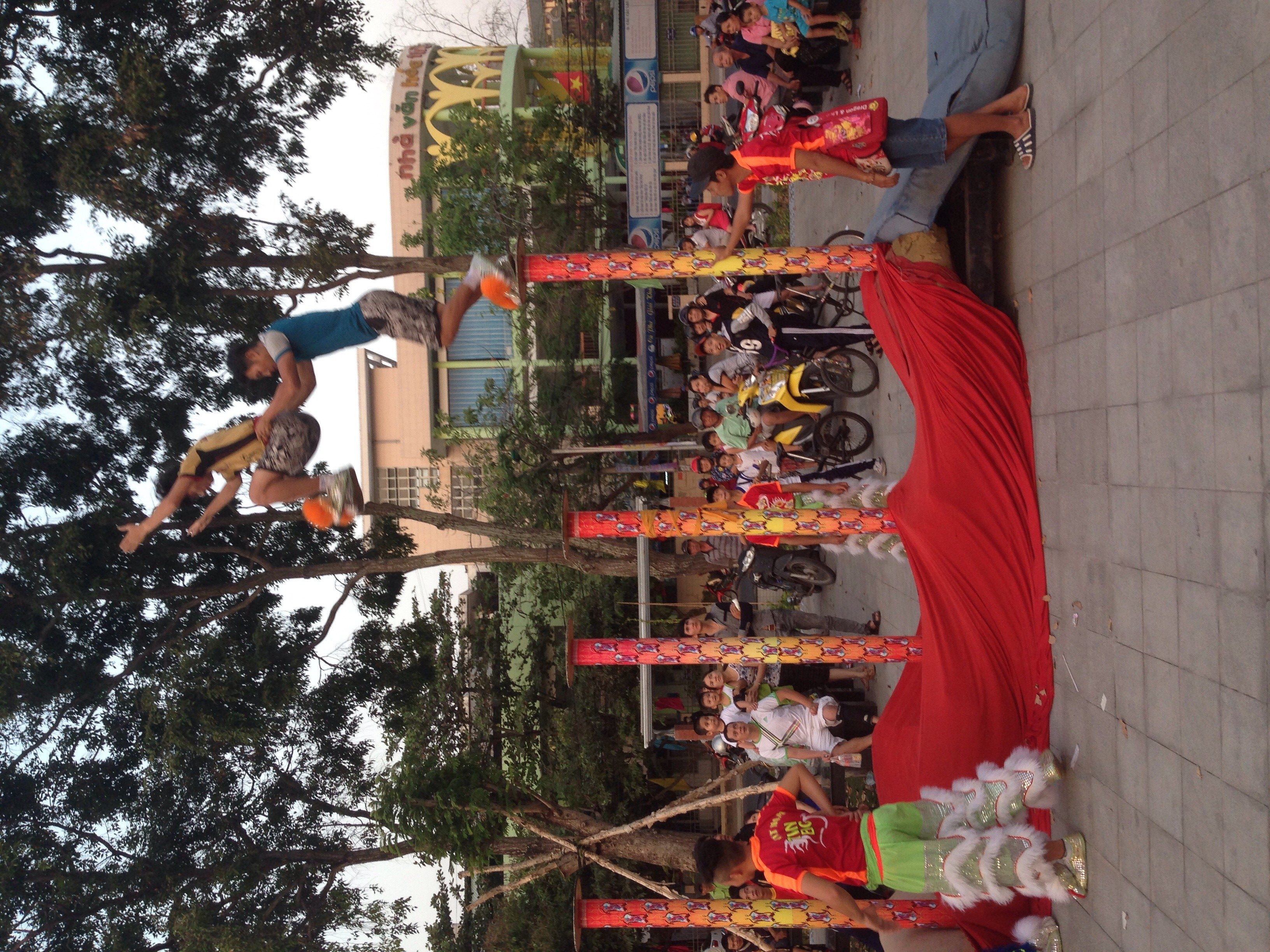In a whispered voice behind me I heard “I hate the balds”. I glanced over my shoulder to see who would so boldly declare their disdain for me.
Standing in a park in Can Tho, Vietnam a little boy, who could be no older than 7 had just given me the middle finger with quiet words while I stood watching acrobats rehearse for the upcoming Tet celebration.
Can Tho is the largest city in the Mekong delta in Vietnam. Being removed from the larger cities, there isn’t much English spoken, so it came as a surprise when the English language was heard so clearly from a local.
Despite the little boy’s unbridled hatred for my alopecia (and presumably, westerners), my girlfriend decided to spark a conversation with him where he answered in short sentences, abruptly, seemingly annoyed with us, only to mutter “I talk English” as he walked away.
Despite his attitude towards my lack of hair, he made me laugh.
Prejudice and racism isn’t an American problem, it’s a world problem. We get comfortable in our neighborhoods, cities, countries, and expect things to “look” a certain way. I’ve been fortunate to grow up in the racial majority in my country, and sometimes forget what it’s like to be on the other side.
I grew up in Iowa. West Des Moines, my hometown, was a majority white middle class suburb full of tract housing, extreme mortgages, and a car for every 16 year old. If I look back at my class pictures from Kindergarten through High School I would say that 99% of the faces were white. WASP immigrant descendants. It’s just who we were. Nobody thought differently, and we all looked the same (I’m exaggerating a bit, but it’s not far from the truth).
My first experience with true racial discrimination and prejudice happened when I moved from Chicago to Seoul, South Korea to teach English.
My first class consisted of sweet second graders who were eager to learn, who loved “Tim Teacher” and thought his demonstrations of singular and plural pronouns were hilarious. Towards the end of the day, as the students got older, the respect diminished. Instead of students looking on with respect I was met with cries of “Teacher, you’re ugly”, “Teacher, you’re fat”, “Teacher, you have a big nose”.
The kids were just the start, however. Most United States citizens (especially the caucasian ones) don’t think much of how we’re perceived outside of our own boarders.
While living in Seoul I found myself refused service at restaurants, kicked out of cell phone stores (greeted by shop owners making an “X” out of their arms as I entered… I could point to what I needed!), and stared at by locals. I was a foreigner in a land of xenophobics.
One day in Seoul I was making my way to the Nakwon music arcade to buy some saxophone reeds. On the subway train there, I sat down, when an old man walked up to me and told me in broken English, “I hate you!”. I was alone, sitting on a train, reading a book. No behavior to the contrary of any other passenger on that train, other than being a foreigner. In contrast, just 20 minutes later, another old Korean man shook my hand and told me in broken English, “Thank you!”.
What did these experiences teach me? The kid in that park in Can Tho, Vietnam most likely learned to hate “the balds” due to country history, parental attitudes, or a foreign caring English teacher who demanded more from the students.
I don’t care if someone says “I hate the balds”, or “I hate foreigners”. The more we travel, all of us, the better.
I think it’s a good thing I’ve experienced the prejudice I have. It’s nowhere close to the levels some of my friends and colleagues in Chicago have experienced, but it gives me an understanding of what it’s like when someone stares, or crosses the street to avoid being on the same side as you, or refuses service.
“I hate the balds” is what that Vietnamese kid said. I smiled, and laughed. I am bald, and White, just like he is Vietnamese, just like some of you are Black, Asian, Indian, Latino, or a mix of everything. No need to be anything else but understanding.
